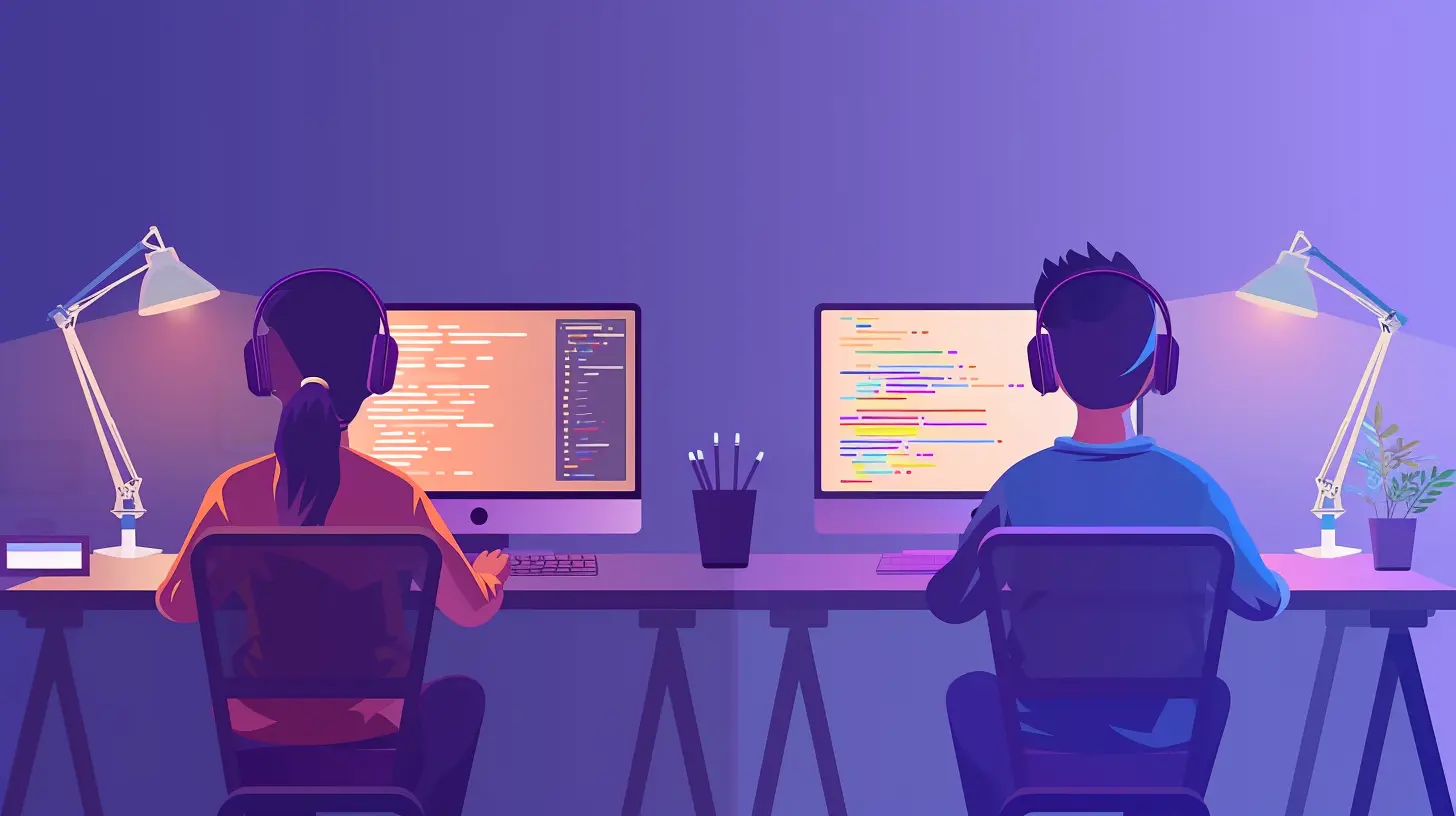24 September 2025
Success isn’t just about talent—it’s about mindset. Have you ever wondered why some students thrive in coding while others struggle? It all comes down to a growth mindset—the belief that abilities can be developed through dedication and hard work. When students embrace this mindset, they turn challenges into learning opportunities rather than roadblocks.
What Is a Growth Mindset?
Before we dive into coding, let’s break down the concept of a growth mindset. Coined by psychologist Carol Dweck, it’s the idea that intelligence and skills aren’t fixed traits. Instead, they evolve with effort, persistence, and learning from failure.The opposite? A fixed mindset, where people believe their abilities are set in stone. Students with this mindset often give up easily when faced with difficulty, fearing failure or assuming they “just aren’t good at” something.
But when students cultivate a growth mindset, they embrace challenges, persevere through setbacks, and understand that mistakes are just stepping stones to success. And what better way to develop this mindset than through coding?
Why Coding Is the Perfect Tool for Developing a Growth Mindset
Let’s be real—coding is tough. It’s frustrating to spend hours troubleshooting a bug, but that’s exactly why it’s the perfect medium for teaching persistence and resilience. Programming isn't about getting everything right the first time; it's about problem-solving, trial and error, and learning from failure.Here’s how the process of coding naturally fosters a growth mindset:
1. Debugging Teaches Perseverance
Imagine spending an hour trying to figure out why your program isn’t working, only to realize you missed a semicolon. Annoying, right? But here’s the thing—debugging is one of the best teachers of perseverance.Instead of seeing errors as failures, students begin to view them as puzzles to be solved. Each error message is a clue, guiding them toward a solution. Over time, they develop patience and the determination to push through difficulties.
2. Problem-Solving Encourages Critical Thinking
Every coding challenge requires critical thinking. How do I make this function work? What’s the most efficient way to achieve this goal? Every time a student writes code, they're training their brains to think logically and analytically.This problem-solving mindset extends to other subjects and real-life challenges. They start to approach obstacles with curiosity rather than frustration, asking, "What can I do differently to make this work?"
3. Failure Becomes a Stepping Stone
In programming, things rarely work on the first try. And that’s a good thing. Coding helps students redefine failure—not as something negative, but as a crucial part of the learning process.Take this simple truth: if your code doesn’t work, it doesn’t mean you're bad at coding. It just means you haven’t found the right approach yet. This mindset shift is life-changing.
4. Creativity Flourishes Through Experimentation
Programming isn't just about logic—it’s also about creativity. Whether building a website, designing a game, or automating tasks, coding encourages students to experiment, take risks, and think outside the box.When students realize that mistakes are simply part of the innovation process, they feel more confident in testing new ideas. And guess what? The more they experiment, the better they become.
Lessons from the Classroom: How Teachers Foster a Growth Mindset through Coding
Teachers play a major role in shaping how students perceive challenges and failures. In a coding classroom, educators can use various strategies to nurture a growth mindset.1. Encouraging Productive Struggle
It’s tempting to step in and help when a student is stuck, but sometimes the best thing a teacher can do is let them struggle a little. Productive struggle helps students build resilience. Instead of just giving them the answer, teachers can ask guiding questions like:- “What have you tried so far?”
- “What do you think might be causing the issue?”
- “Can you break the problem into smaller steps?”
Through this process, students learn to troubleshoot independently and develop confidence in their problem-solving abilities.
2. Normalizing Mistakes through Code Reviews
Mistakes should be celebrated, not feared. One way to normalize errors is through code reviews, where students examine each other’s work and provide constructive feedback.By seeing mistakes as learning opportunities rather than failures, students become more comfortable with making errors, receiving feedback, and refining their work. It’s a cycle of continuous improvement.
3. Promoting a “Yet” Mindset
A simple shift in language can make a huge difference. Instead of saying, “I can’t do this,” students are encouraged to say, “I can’t do this… yet.” That one word—yet—changes the entire perspective. It reminds them that skills take time to develop and that struggle is part of growth.4. Setting Growth-Oriented Goals
Instead of focusing solely on final outcomes (like finishing a project), teachers encourage students to set process-based goals, such as:- “I want to understand how functions work.”
- “I’ll aim to debug my code without outside help.”
- “I’ll write clean and well-documented code.”
These small, measurable goals reinforce the idea that progress is just as important as results.
Real-World Impact: How Coding and a Growth Mindset Shape Future Success
The lessons students learn through coding extend far beyond the classroom. Whether they become software engineers, entrepreneurs, or pursue fields completely unrelated to tech, the ability to embrace challenges, learn from criticism, and persist through difficulties will serve them for life.Think about it—most successful people didn’t get there because they were naturally gifted. They got there because they kept going, even when things got tough. Coding teaches students the value of perseverance, helping them develop the resilience needed to tackle any problem, both in tech and beyond.
Final Thoughts: Keep Coding, Keep Growing
Coding isn’t just about writing lines of code. It’s about developing a mindset of resilience, curiosity, and continuous improvement. Every bug fixed, every problem solved, and every new concept mastered reinforces the idea that effort leads to success.So, whether you're a student learning to code or a teacher guiding the next generation, remember this: the real power of coding isn't just in what you create—it's in how you grow.
Keep coding. Keep learning. Keep growing.









Aris McPherson
This article effectively highlights the benefits of coding in fostering a growth mindset among students. By emphasizing resilience and problem-solving, it showcases how coding can empower learners to embrace challenges. It's a valuable reminder of the intersection between technology and personal development in education.
January 13, 2026 at 12:40 PM